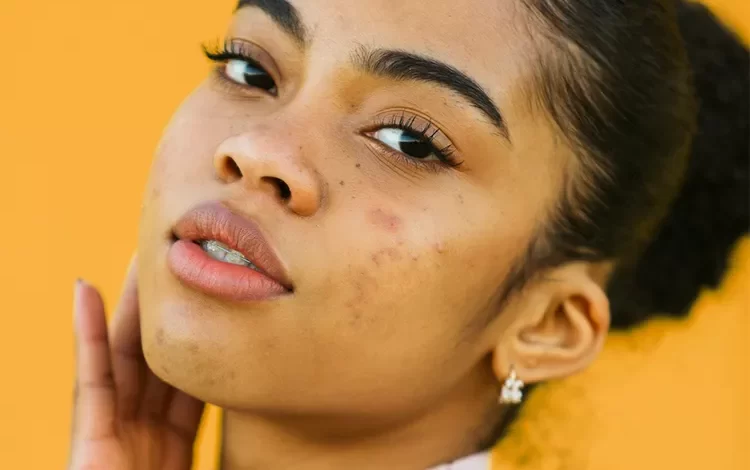Holiday Travel: Tips on Skin Breakouts & Acne
Acne occurs when the pores of your skin become blocked with oil, dead skin, or bacteria.

Acne is the skin condition that causes pimples. Acne is very common. In fact, research estimates that 9.4% of people worldwide have acne.
While acne doesn’t pose a serious risk to your overall health, it can still be painful, particularly if you have severe acne. Over time, acne might also cause scarring. Acne and acne scars on your face and other visible body locations can affect self-esteem and self-confidence.
What are the different types of acne?
If you have acne, you might notice a mix of pimple types. Whiteheads and blackheads, both also referred to as comedones, are the most common acne lesions.
- Blackheads, or open comedones, open at the surface of your skin. Oxygen in the air (not dirt) gives the top of these pimples their darker appearance.
- Whiteheads, or closed comedones, form as raised bumps under the surface of your skin. They remain flesh-colored.
Inflammatory lesions, which are more likely to cause scarring of your skin, include:
- Papules. These small, red, raised bumps are caused by inflamed or infected hair follicles.
- Pustules. These small red pimples have pus at their tips.
- Nodules. These solid, often painful lumps develop beneath the surface of your skin.
- Cysts. These large lumps beneath your skin contain pus and are usually painful.
What are the symptoms of acne?
Acne can be found almost anywhere on your body, but you’ll most commonly notice breakouts on your:
- face and neck
- back
- shoulders
- chest
ALSO READ: SKIN BLEACHING – HOW IT WORKS AND THE LONG TERM EFFECTS
Pimples can give your skin a rough, uneven texture. With acne, you might also experience:
- skin discoloration, including dark patches or spots (hyperpigmentation) and redness
- swelling and inflammation
- pain and tenderness when touched or not
Acne breakouts can also cause scarring or discoloration on your skin. Popping pimples can raise your chances of scarring, so avoid squeezing — no matter how tempting it feels to get rid of the pimple immediately — and try these tips.
What causes acne?
Acne occurs when the pores of your skin become blocked with oil, dead skin, or bacteria. Each pore of your skin opens to a follicle. The follicle is made up of a hair and a sebaceous (oil) gland.
The oil gland releases sebum (oil), which travels up the hair, out of the pore, and onto your skin. Sebum helps keeps your skin lubricated and soft. One or more mishaps in this lubrication process can contribute to acne.
Acne might occur, for example, when:
- your follicles produce too much oil
- dead skin cells accumulate in your pores
- bacteria build up in your pores
Any of these concerns can lead to pimples, which develop when bacteria grow in a clogged pore and the oil can’t escape.
What are the risk factors for developing acne?
Experts still don’t know exactly why some people experience acne and others don’t. That said, they do recognize a number of risk factors can contribute to or worsen acne, including:
- hormonal changes due to pregnancy or puberty
- polycystic ovarian syndrome (PCOS) and other endocrine conditions
- cigarette smoking
- poor sleep
- stress
- cleansers, creams, moisturizers, and other beauty products with high oil content
- certain medications, including lithium, some types of hormonal birth control, anticonvulsants, and steroids
- a family history of acne
ALSO READ: SKIN BLEACHING – HEALTH RISKS AND EFFECTS
You have the highest risk of developing acne during puberty. During this time, your body undergoes many hormonal changes. These changes can trigger oil production, leading to an increased risk of acne. Hormonal acne related to puberty usually improves when you reach adulthood, and your breakouts may even stop completely.
According to a 2021 review, certain foods or diets may have an effect on acne:
- Low glycemic index diet. Cutting back on foods with a high glycemic index, such as refined carbs and added sugars, could help reduce acne lesions.
- Milk products. Consuming certain milk products, like milk and ice cream, seems to worsen acne for some people. However, cheese, as well as nonmilk dairy products, don’t seem to worsen acne.
- Fat and fatty acids. Omega-3 and omega-6 fatty acids may help reduce acne breakouts.
- Vegan and vegetarian diets. While vegan and vegetarian diets can offer plenty of health benefits, little evidence supports them specifically for the treatment of acne.
- Probiotics. While probiotics — found in yogurt, other fermented foods, and supplements — could help improve acne, experts have yet to find conclusive support for probiotics as an acne treatment.
Treatment of acne
You can use over-the-counter (OTC) medicated creams, cleansers, and spot treatments to help address pimples as they pop up. Common ingredients you’ll find in acne creams and gels include:
- Benzoyl peroxide. This ingredient helps dry out existing pimples, prevents new ones from forming, and kills acne-causing bacteria.
- Salicylic acid. This ingredient helps exfoliate your skin to prevent pores from getting clogged with acne-causing bacteria.
If you continue to experience symptoms after using OTC acne treatments for several weeks, you may want to consider reaching out for professional treatment.
A dermatologist or other healthcare professional can prescribe medications that may help reduce your symptoms and prevent scarring. If you have moderate acne, a dermatologist may recommend:
- prescription-strength benzoyl peroxide
- antibiotics, like erythromycin or clindamycin
- retinoids, such as retinol
In some cases, they may suggest an oral antibiotic or hormonal birth control to help manage acne. For severe acne, a dermatologist may recommend treatment that combines one or more of the following:
- oral antibiotics
- benzoyl peroxide
- topical antibiotics
- topical retinoids
They may also suggest hormonal birth control or oral isotretinoin.
Source| Healthline


























